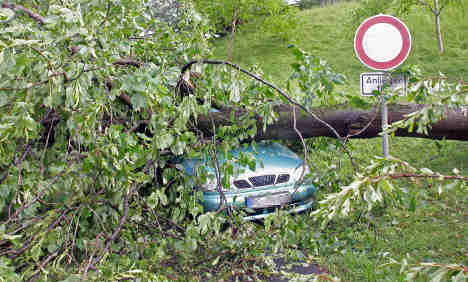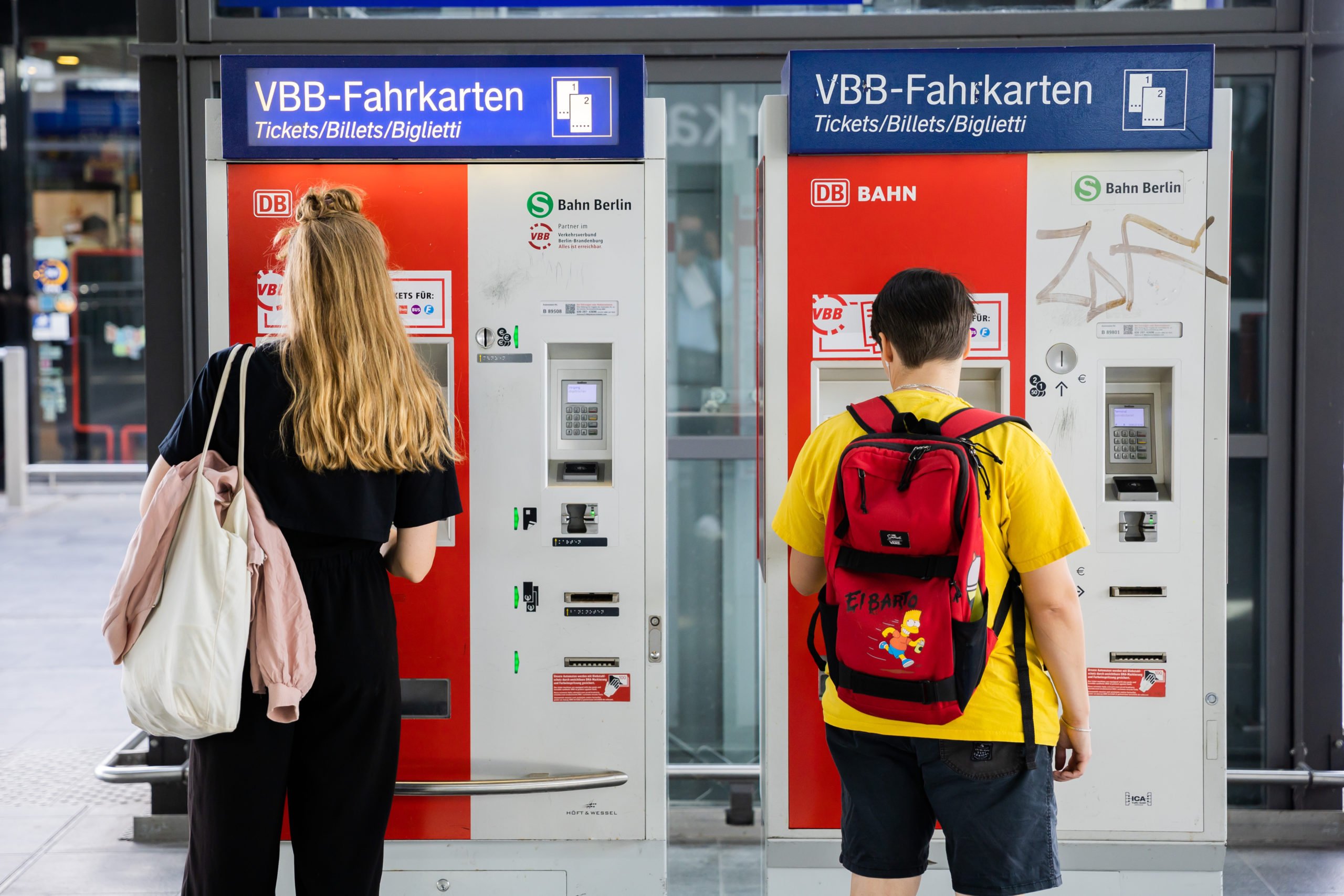A 57-year-old woman drowned when her canoe overturned on Lake Constance near Radolfzell in the storm, while a 77-year-old woman was crushed to death by a strawberry stand which collapsed on top of her. A five-year-old girl was also seriously hurt when a branch torn from a tree smashed into her family’s car in Heidenheim.
Roofs were torn up and cellars were flooded with rainwater as drains were blocked by leaves and other debris while winds ripped up trees and pushed them over.
In the Rhine-Main area, traffic ground to a halt because of the heavy rain, with drivers stuck on the A5 motorway for 25 kilometres near Bad Homburg. The fire department in Frankfurt was called out around 30 times to pump out flooded cellars.
Bavaria was hit with hail storms which caused further damage. One man was seriously hurt after a tree crashed down on a garden hut in Riedering. He was taken to hospital by helicopter.
Click here for The Local’s weather forecast.
Several boats ended up floating around on the Chiemsee after being torn from their moorings. One farmer in Bamberg had terrible luck with the roof of a machine hall being torn off by the wind, which destroyed his newly installed solar electricity generation system worth around €200,000.
The Berlin fire department declared an emergency for around 90 minutes, putting 23 volunteer fire services on alert, as more than 130 weather-related calls were answered. These included fallen trees blocking train lines and electricity cables resulting in disruption on the connections to Dresden and Frankfurt an der Oder.
Around 50,000 households were cut off from electricity in Saxony, Saxony-Anhalt and Brandenburg after a number of pylons were brought down by the storm. Even late into the night around 21,000 houses were still blacked out, while it remained uncertain when supply might be restored.
The A4 motorway near Schorba in Thuringia was closed in both directions due to fallen trees while the heavy rainfall made driving treacherous. One woman was seriously injured in Baden-Württemberg when a silo collapsed in the storm and hit her.
DAPD/hc





 Please whitelist us to continue reading.
Please whitelist us to continue reading.
Member comments